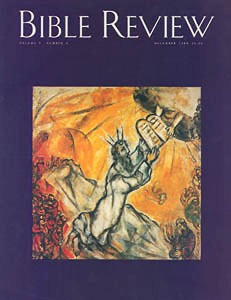Eschatology, from the Greek eschatos meaning “last,” is traditionally the doctrine or study of the “last things.” The “last things” for an individual are death, resurrection, judgment and the afterlife; in a wider sense, however, they comprise the end of the world and all that goes with that concept.
Today the word eschatology is more often used to denote the study of the “last days”—a biblical term for the closing period of human history, or of some epoch of human history.
In Genesis 49:1 Jacob calls his sons around him to receive his blessing before he dies: “Gather yourselves together, that I may tell you what shall befall you in days to come.” The last four words (two in Hebrew: a-kha-RIT ha-ya-MIM) rather accurately reproduce the sense of the Hebrew: the blessing seems to portray the situation of the tribes of Israel before and during the time of David. But the Septuagint, the oldest Greek translation of the Hebrew Bible—from the third century B.C.E.a—translates those same Hebrew words as “in the last days,” giving them an eschatological twist.
Already a library member? Log in here.
Institution user? Log in with your IP address.

